Where to Find Minerals in Food
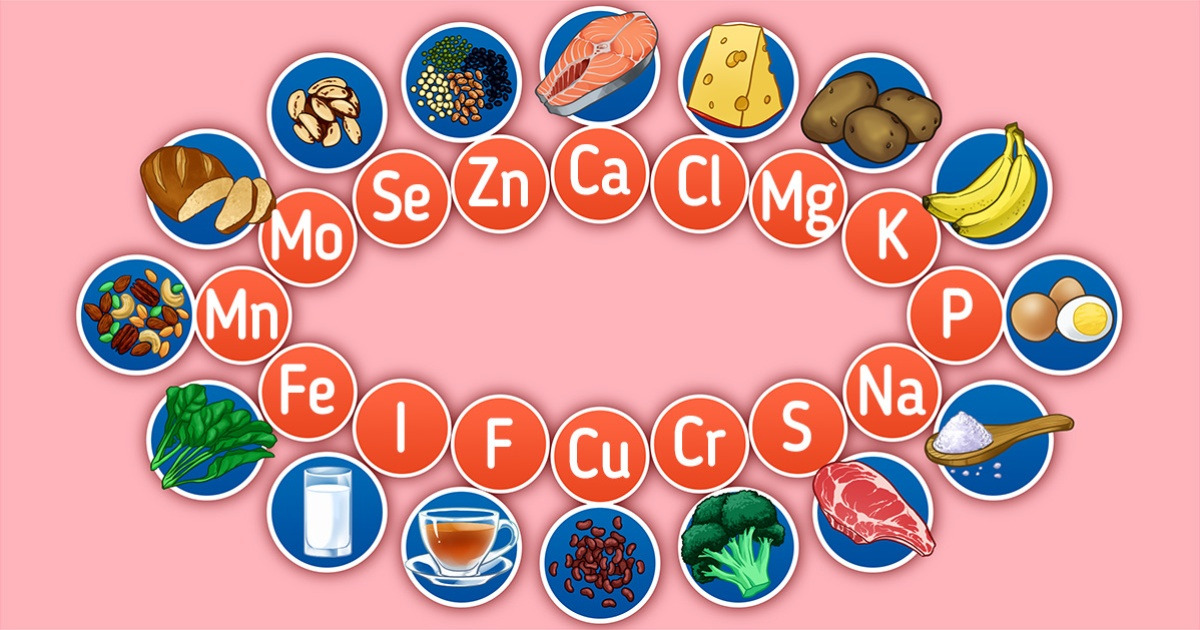
Minerals are some of the key elements for our optimal health. Their intake is highly important to keep our bodies functional and protected from diseases. 5-Minute Crafts wants to make sure you have the information about what each mineral is for and where to find it.
❗ This article is for informational purpose only and doesn’t replace professional advice.
Types of minerals
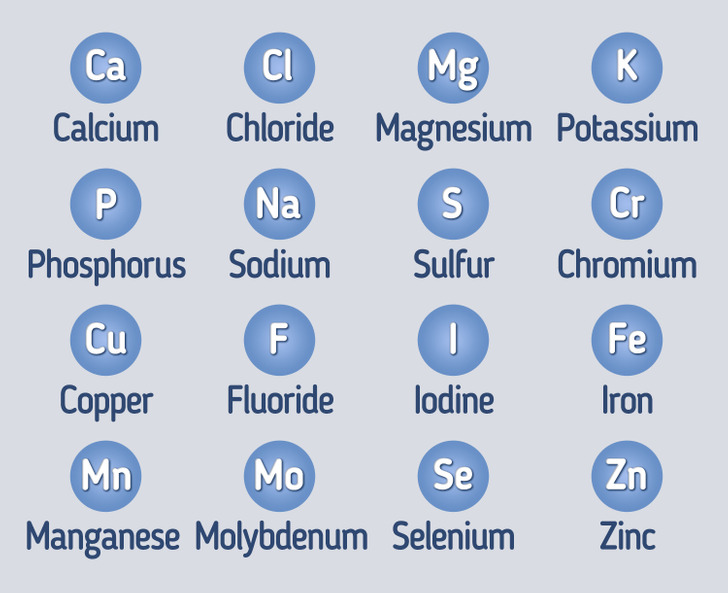
Minerals should not be confused with vitamins. They are substances of inorganic origin and can be found in water, soil, and rocks.
There are 2 types of essential minerals:
- Major minerals. They are also called macrominerals, but their importance is not necessarily higher, we just need them in our bodies in greater amounts. These minerals include calcium, chloride, magnesium, potassium, phosphorus, sodium, and sulfur.
- Trace minerals. Also called microminerals, this group consists of chromium, copper, fluoride, iodine, iron, manganese, molybdenum, selenium, and zinc. We only need them in very small amounts.
Calcium
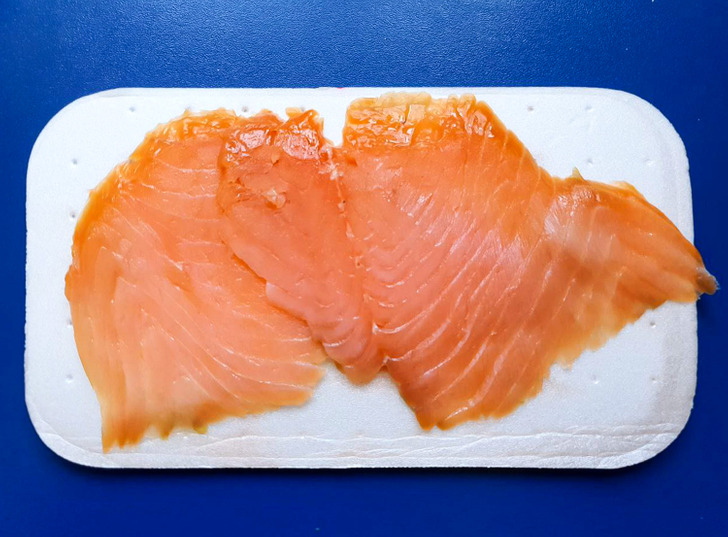
Calcium is a very important mineral for bone health, cells, and nerves, as well as for muscle contractions. Its intake is very important because if there is not enough calcium in our blood, our body will weaken our bones by taking calcium out of it.
You can find it in milk, yogurt, hard cheeses, kale, and fortified cereals, as well as in salmon and green leafy vegetables.
❗ Recommended daily intake for adults: 1,000-1,200 milligrams (depends on factors like age and gender).
Chloride
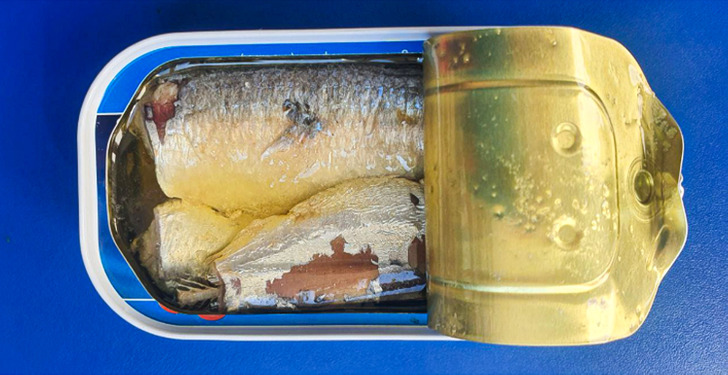
The major mineral called chloride helps our body digest food, our muscles and heart contract, and it aids our nerve cells in transmitting nerve impulses. Moreover, it helps the oxygenation of our bodies and balances the fluids in our bodies.
It is contained in food sauces, processed meats, canned fish, and cheese, but try to eat them in moderation.
❗ Recommended daily intake for adults: 3.1 grams, at maximum.
Magnesium
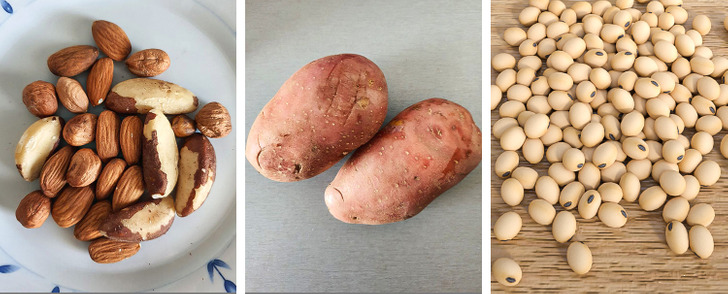
Magnesium’s importance should not be neglected either. This mineral promotes nerve and muscle function, bone health, and heart rhythm.
You should consume nuts, green leafy vegetables, dairy products, potatoes, soybeans, quinoa, and whole wheat.
❗ Recommended daily intake for adults: 310-420 milligrams (depends on factors like age, gender, pregnancy, and breastfeeding).
Potassium
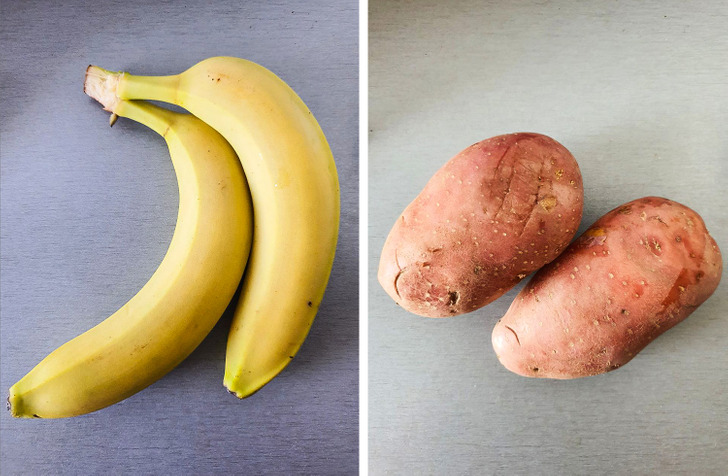
The major mineral called potassium reduces the risk of having kidney stones and helps in controlling your blood pressure.
You can find it in bananas, potatoes, milk, yogurt, soybeans, and various fruits and vegetables.
❗ Recommended daily intake for adults: 4,700 milligrams (5,100 milligrams if breastfeeding).
⚠️ Although there is no precise upper limit on potassium consumption, high doses of it can be lethal.
Phosphorus

Phosphorus is a mineral that provides cell functioning and bone growth. It also helps make energy.
Where to find it: milk, dairy products, peas, eggs, and meat.
❗ Recommended daily intake for adults: 700 milligrams.
Sodium
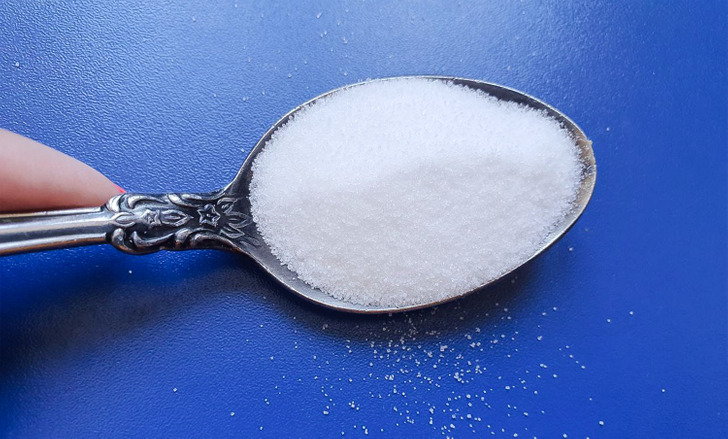
Sulfur

Chromium

Moving onto trace minerals, the mineral that aids in controlling blood sugar levels is chromium.
Make sure you consume broccoli, potatoes, meat, poultry, fish, cheese, and nuts.
❗ Recommended daily intake for adults: 20-45 micrograms (depends on factors like age, gender, pregnancy, and breastfeeding).
Copper

Copper, on the other hand, is a micromineral that helps our body process iron.
It can be found in foods like nuts, seeds, whole grains, seafood, beans, and prunes.
❗ Recommended daily intake for adults: 900-1,300 micrograms (depends on factors like pregnancy and breastfeeding).
Fluoride

Iodine

The mineral iodine is involved in producing thyroid hormones, which is why our body needs to have a regular intake of it.
The food sources for iodine include seafood, seaweed, dairy products, and iodized salt.
❗ Recommended daily intake for adults: 150-290 micrograms (depends on factors like pregnancy and breastfeeding).
Iron
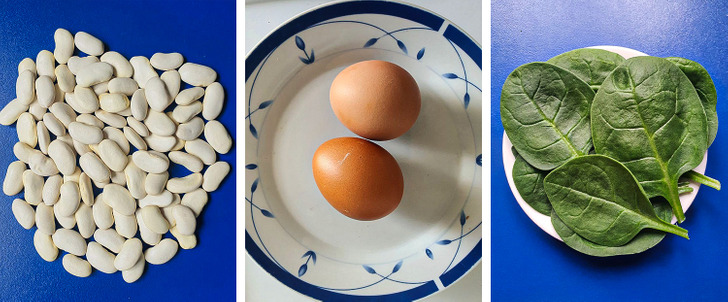
When it comes to iron, we must mention the important role of this trace mineral in making erythrocytes, which are, in fact, red blood cells. It is also needed for some enzymes.
Make sure you consume lentils, beans, fortified cereals, beef, dark meat, soybeans, and spinach. You can also find it in poultry, eggs, and fruits.
❗ Recommended daily intake for adults: 8-27 milligrams (depends on factors like age, gender, pregnancy, and breastfeeding).
Manganese

Manganese is a trace mineral required to make certain enzymes, and it also forms bones.
It occurs in foods like nuts, whole grains, legumes, and tea.
❗ Recommended daily intake for adults: 1.8-2.6 milligrams (depends on factors like gender, pregnancy, and breastfeeding).
Molybdenum

Selenium

Speaking of selenium, we must mention that this important trace mineral aids in preventing cell damage and helps control the thyroid hormones too.
Try to consume seafood, dairy products, organ meats, and Brazil nuts as selenium sources.
❗ Recommended daily intake for adults: 55-70 micrograms (depends on factors like pregnancy and breastfeeding).
Zinc

Besides being important for reproduction, zinc is a valuable mineral for supporting our nerve function and immune system.
You should make sure you eat red meats, but also legumes, shellfish, and whole grains.
❗ Recommended daily intake for adults: 8-12 milligrams (depends on factors like gender, pregnancy, and breastfeeding).